Habits in a Hybrid World
___
BONUS FREEBIE: Want even more ways to stay organized, productive and less stressed? Click here to get access to my List-Making Starter Kit. It will boost your efficiency and get you back to doing more of the things you love.
___
For many of us, the disruptions in how we live and work during the pandemic provided perspective on changes we wanted to make in our lives. We started new projects, new hobbies, reconnected with friends, and, sometimes, we found ourselves in new ruts.
As many of us head back into the office full or part time (or permanently transition to working from home), it’s the perfect time to evaluate our current habits and cultivate new ones to add to our happiness and productivity.
Recently, I sat down with Gretchen Rubin on LinkedIn Live’s Office Hours to discuss how we can use this moment of flux to make ourselves happier and more productive.
Here are a few ways to do that.
1) Evaluate your habits.
Transitional periods are great times to develop new habits and can serve as a clean slate. When old habits are wiped away, new habits can rush in. But they can also be moments where it’s hard to keep up with good habits you’ve already developed.
Before your new phase begins, think ahead about what you want.
What would your perfect day look like? Gretchen stressed the importance of thinking about what we want to get done over the course of the week.
She recommends asking yourself, “What do I really want to do with that time? Where would I get the biggest bang for my time, energy and money? A lot of it is about thinking about, well, what would make me happier, healthier, more productive, more creative and how does that translate into concrete and manageable habits that I could follow?”
So you have to be specific.
As Gretchen reminded me, “It’s very easy to say, I want to eat healthier.” But it’s hard to hold yourself to that idea. It’s more useful to say, “I want to eat healthier. How will I do that?”
Maybe it’s bringing lunch from home every day. (You might also want to make a list of healthy restaurants close to your office in case you forget your lunch one day.) That’s a habit you can measure and stick to. Goal setting and being less stressed is also something I tackle in my book Listful Living: A List-Making Journey to a Less Stressed You. It takes a look at where you are, where you’d like to be and then how you can make it happen.
Gretchen and I agree, if you want to make a change, that means you have to plan ahead.
___
Want more tips on working in a hybrid work environment? Join me for my LinkedIn Learning course “Enhance Productivity in a Hybrid Work Environment.”
___
2) Plan ahead and make it happen.
Maybe you want to meditate at a specific time in your day. Or start your day with a cup of coffee. Or not giving up your afternoon walks. Or enjoying nature. Or whatever it is.
Whatever habits you decide on, make sure you do it from the very first day back in the office.
Because “however you start, it’s very much how you’re going to continue,” Gretchen warns, “so right from that first day, do the way you want.”
Set a boundary or a rule for yourself that will help you day to day. Maybe it’s about leaving the office at a certain time or taking your break in the middle of the day.
Whatever it is, hold yourself to it, because the hardest part of any habit is starting. And the longer you put it off, the longer you’re not meeting your goals.
3) Work with your personality type.
Just as you don’t need to force yourself to become a morning person to be productive, don’t force yourself to develop new habits in ways that work against your natural behavior.
Gretchen’s book, The Four Tendencies, breaks down everyone’s personalities into four main categories: Upholder, Obliger, Questioner, and Rebel.
These categories will help you look at how you meet inner and outer expectations to figure out the best ways to develop new habits or get rid of unhelpful ones.
From Gretchen’s quiz, I found out I’m an “Upholder.” And so is she!
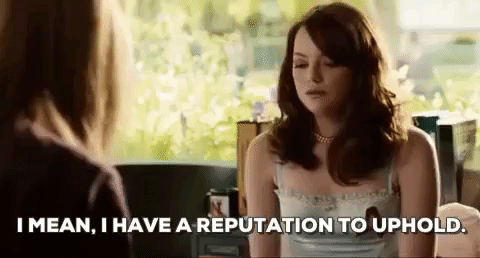
“Upholders” are great at meeting inner and outer expectations.
Gretchen says that upholders “keep the work deadline” and “meet a new year’s resolution.” They keep the expectations they set for themselves as easily as the expectations others set for them. “Their motto is: Discipline is my freedom.”
The next category is “Questioners.”
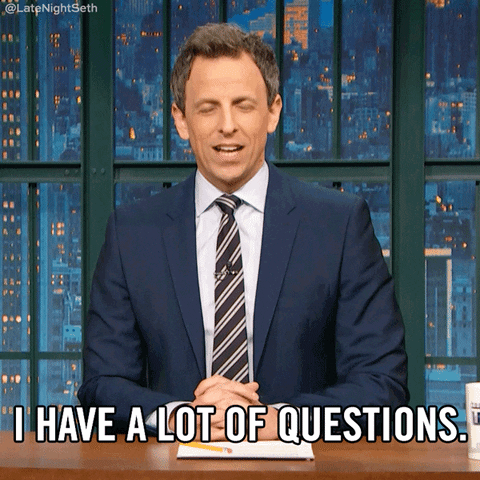
“Questioners” question everything.
Although this category might seem a little obvious because of the title, Gretchen clarifies by saying that “Questioners” only do things when they, “Make sense. They resist anything arbitrary, inefficient, unjustified. They have to know why.”
Something needs to make sense to their inner standards for them to do it. If it doesn’t, they will push back against it. “Their motto is: I’ll comply If you convince me what.”
Then there are “Obligers” – the most common personality category.
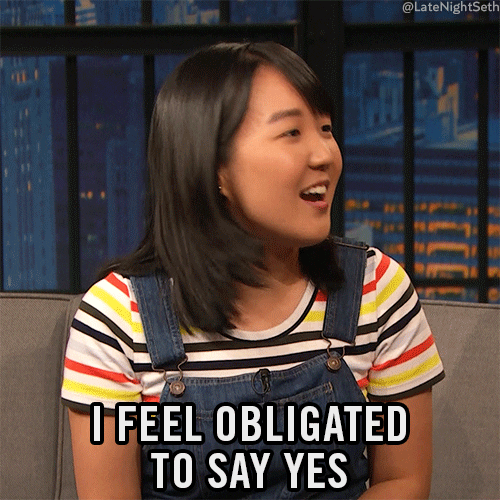
“Obligers” easily meet outer expectations. But struggle with inner expectations.
And that’s okay. Gretchen says all this personality character has to do to meet an inner expectation is to “create a system of outer accountability.” She suggests that if “you want to read more, join a book group. You want to exercise more, workout with a trainer, workout with a friend who’s gonna be annoyed if you don’t show up.” Accountability will help you (and others) reach goals and create habits. “Their motto is: You can count on me and I’m counting on you to count on me.”
And then finally, “Rebels.” (This is the least common category.)
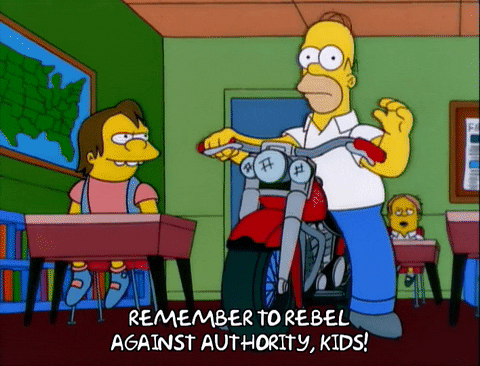
“Rebels resist all expectations, outer and inner alike.”
Gretchen says “they want to do what they want to do in their own way, in their own time. If you ask or tell them to do something, they’re very likely to resist.” But don’t take that personally, they have trouble telling themselves what to do too.
For example, it’s hard for them to show up to appointments they’ve made because just the idea that someone is expecting them to show up will annoy them. “Their motto is: you can’t make me and neither can I.”
What about you?
Any of these categories feel familiar? Good. Once you know your tendency, you can figure out the best way to set and keep a new habit or transform an old one.
Not sure which category you fall into? That’s okay – everyone has a little bit of all these categories, but one is usually dominant. You can take Gretchen’s Four Tendencies Quiz to find yours and start setting your habits in a more efficient way.
Identifying personality types can benefit more than just you! Knowing your team’s personality type can help you know how to motivate them as a team leader. Or help you figure out how to approach your boss about an idea or change you want to make.
4) Find the right kind of list to track your habits.
As you know, I’m a fan of to-do lists. To-do lists can help you track how successful you are at sticking to your habits. I spend time at the end of every day making a list of what I have to get done the next day. And then I accomplish it. For me, making a list and sticking to it is easy.
But it might not be as easy for you. Gretchen suggests making a “Ta-da list,” as an alternative. A ta-da list is similar to a to-do list, but instead of a list of things you’re going to-do, you make a list of what you’ve already done. This type of list can be very energizing for certain personality types and motivate you to keep going and get more done during the day.
Another great list suggestion from Gretchen, which is especially useful for rebels, is a “Could-do list.” This list is a list of things you could-do, if you feel like it. You’re not beholden to this list, it’s just a way to keep track of what you might want or need to do and give you the option to complete tasks.
___
Want more lists to help get stuff done? Join me for my LinkedIn Learning course “The Power of Lists to Get Stuff Done.”
___
If you don’t form the habit you want right away or at all – don’t beat yourself up. Starting and keeping new habits (or transforming old ones) takes time. And the amount of time it takes will be different for everyone. Keep evaluating and testing out new ones!
To learn about more ways to evaluate and create new habits check out my entire conversation with Gretchen here.
___
BONUS FREEBIE: Want even more ways to stay organized, productive and less stressed? Click here to get access to my List-Making Starter Kit. It will boost your efficiency and get you back to doing more of the things you love.
___

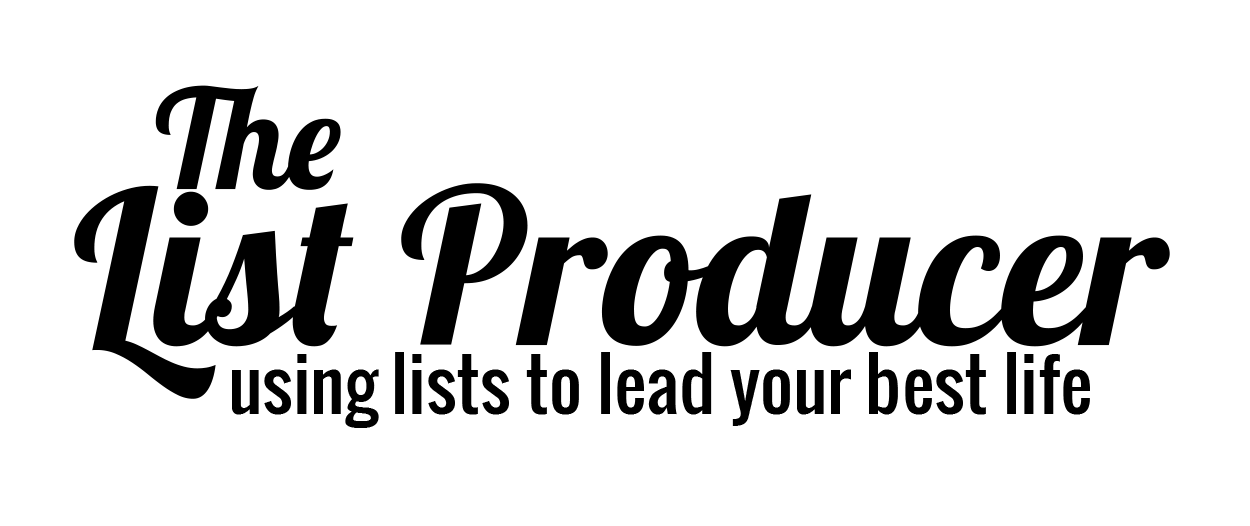
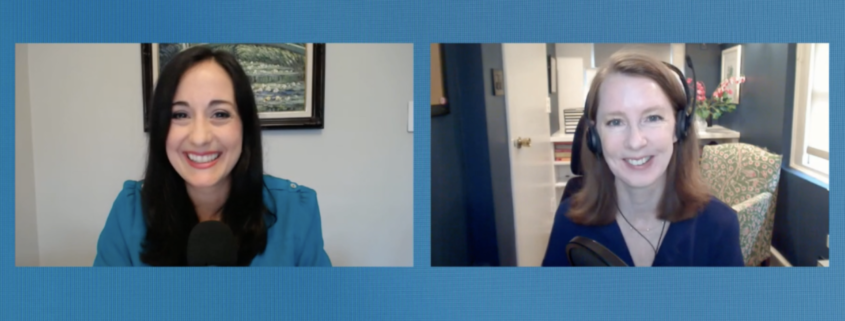
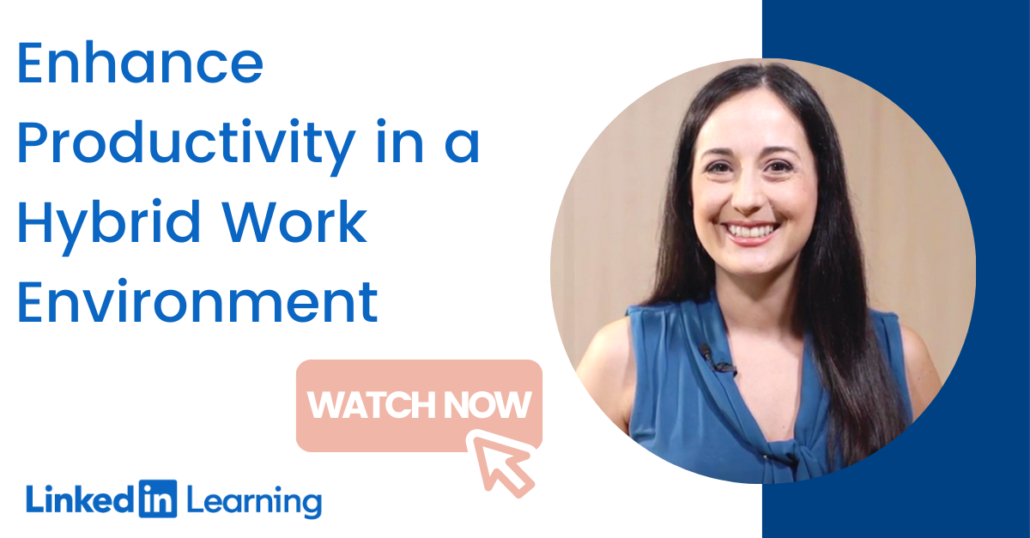
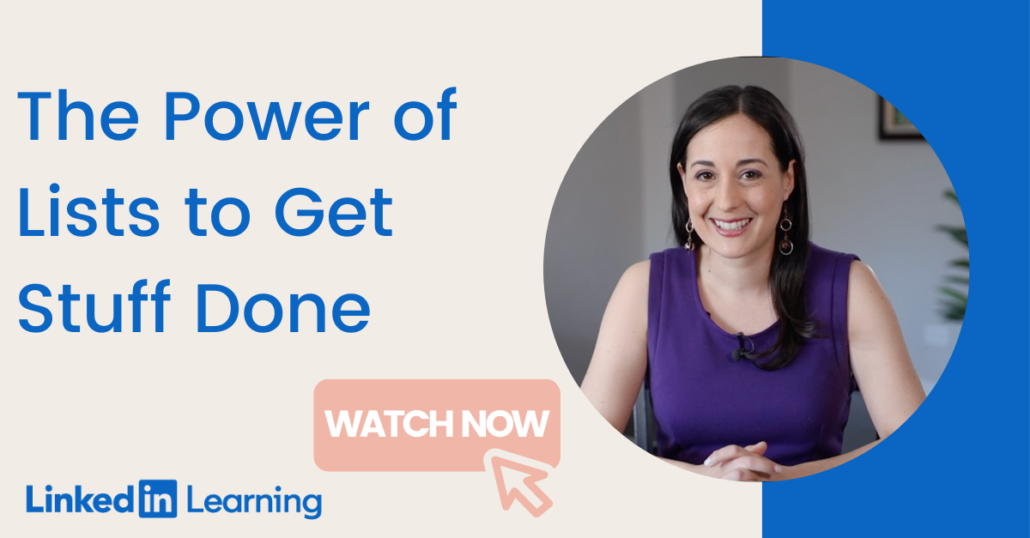
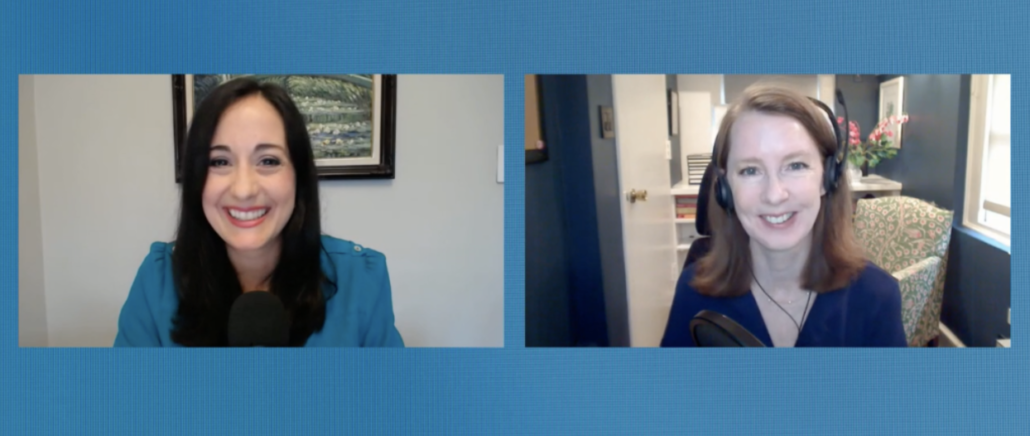


Leave a Reply
Want to join the discussion?Feel free to contribute!